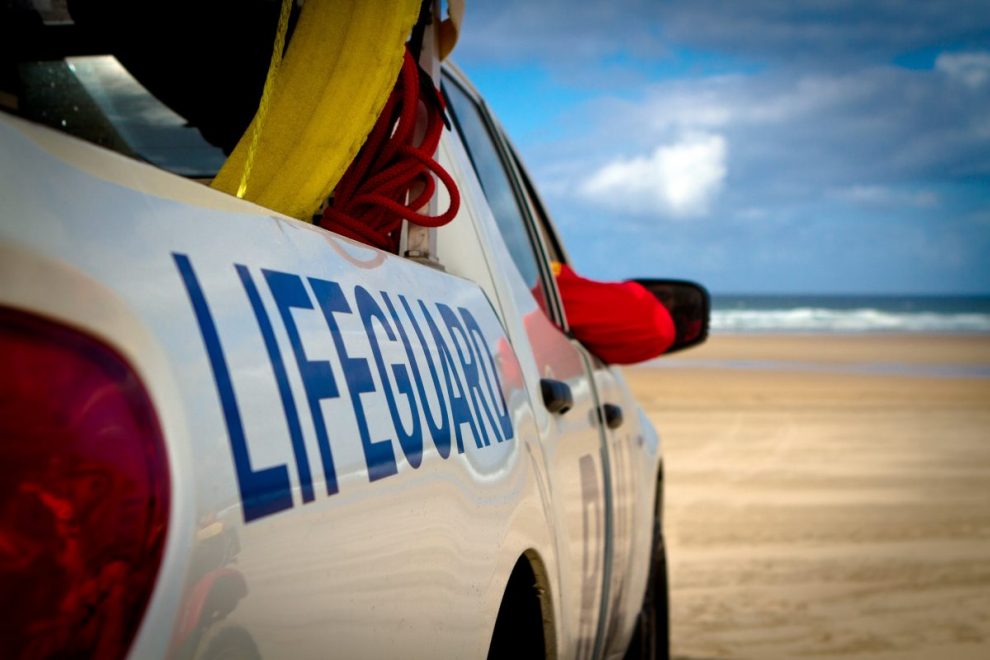THE RNLI has launched a safety campaign ahead of half term as new figures reveal there were 22 deaths from accidental drowning in Wales last year.
With warmer weather, a bank holiday and the May half term approaching, the RNLI is launching a Float to Live campaign, to ensure families know what to do should they get into trouble on the water.
The launch comes after figures reveal there were 22 deaths in Wales from accidental drowning in 2022 across inland and coastal locations.* Research indicates a third of UK people don’t know what to do if they get into difficulty in the water.**
Drowning statistics for Wales showed four people under 20 died in accidental drownings in Wales in 2022 – the highest number since comparable data became available in 2015.Last year was also the first-time accidental drowning deaths in the males 10-19 age bracket were higher than any other age range in the data set from the National Water Safety Forum’s Water Incident Database (WAID).
The accidental drownings form part of the 48 total water-related fatalities in Wales for 2022, a decrease of one from the previous year and the fourth consecutive year of overall reduction in Wales.
Experts at the charity are urging everyone planning to enjoy the coast to remember that if you get into trouble in the water, Float to Live. The campaign is launched as the RNLI reveals that 32% of people still do not know what to do if they unexpectedly get into difficulty in the water.
New research carried out by the RNLI and the University of Portsmouth’s Extreme Environments Laboratory (EEL) tested people in different open water environments.
The research has shown that tilting your head back to submerge the ears is key; we all float best in slightly different positions so your legs may naturally sink, and you may need to use your hands to scull.
Relax and try to breathe normally, then once your breathing is under control, call for help or swim to safety if you feel able.
If you spot someone else in trouble in the water call 999 – if you are at sea or on the beach ask for the coastguard, or if inland ask for the Fire and Rescue Service.
Nationally, there were 226 deaths in the UK from accidental drownings in 2022, across inland and coastal locations. Of the people who died 40 per cent had no intention of entering the water, such as those walking, with causes including slips, trips and falls, being cut off by the tide, or swept in by waves.
The RNLI & EEL research shows that floating is different for everyone, where some people naturally float with little movement, others require gentle use of their hands and legs to stay afloat.
If you find yourself in difficulty in the water:
- Tilt your head back with ears submerged
- Relax and try to control your breathing
- Use your hands to help you stay afloat
- It’s OK if your legs sink, we all float differently
Chris Cousens, RNLI Water Safety Lead for Wales says: “We are all deeply saddened to hear of the tragic incidents involving young people losing their lives in open water in Wales last year. Our sympathies are with the families of all those affected. We’re keen for people to take heed of some simple safety advice to keep them and their families safe as they make plans for the bank holiday weekend of the upcoming half term.
“Traditionally, with the weather warming up, people have flocked to the coast to enjoy our fabulous coastline. We want people to have fun but want to ensure if an emergency unfolds, people know what to do.
“If you get into trouble in the water, Float to Live: tilt your head back with ears submerged and try to relax and control your breathing. Use your hands to help you stay afloat and then call for help to swim to safety if you can.
“I’d really encourage anyone reading this to help spread the word to any family and friends – and next time you are in a safe environment practice floating for yourself – why not try it between the red and yellow flags when visiting an RNLI lifeguarded beach.”
Professor Mike Tipton, from the University of Portsmouth EEL, said: “We have had a long and productive relationship with the RNLI and it is great to see our collaborative research saving yet more lives in water. It also emphasises the importance of raising public awareness of Float to Live via as many platforms as possible.”

















